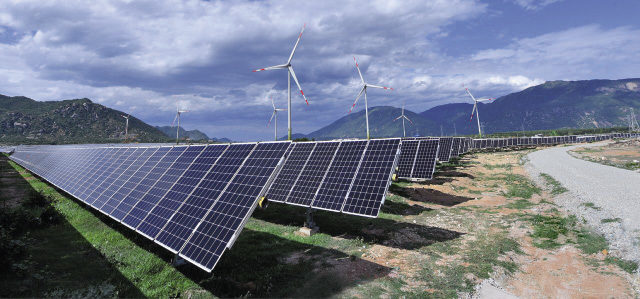U.S.-owned analyst Wood Mackenzie today reported declines in European gas and coal generation have been driven by the recent grid connection of renewable plants in combination with Covid-19 dampening energy demand. High volumes of solar power generated in Germany over the weekend squeezed the business case for fossil fuels even further, WoodMac reported in its weekly Covid-19 round-up, although a recovery in the energy price did restore margins for gas plants in Germany, Italy and Spain this week.
The analyst has revised its solar capacity estimate for the year down 18% from 129.5 GW to 106.4 GW and said energy storage capacity roll-out will also come in at 20% less than previously predicted. In both cases, said WoodMac, utility scale projects would be hit by delays whereas small scale installations – residential and commercial – would be much harder hit thanks to the economic fallout from extended coronavirus lockdowns. The analyst said storage would recover to pre-Covid-19 levels next year and solar capacity to 3% below its business-as-usual expectations but warned a prolonged global recession or changes to utility procurement or available finance could push that prediction out the window. It was also revealed China and Vietnam are mulling “feed-in tariff extensions”, in response to the public health crisis, and South Korea, which is holding national elections today, is “looking at new policy measures.”
WoodMac also predicted electric vehicle sales would be down 43%, year-on-year for 2020 but will recover, with 32 of Volkswagen’s 33 Chinese facilities – plus all of its 2,000 Chinese dealerships – already back in operation.
Netherlands
Popular content
A Dutch research organization has backed a call by PV trade body Holland Solar to push back the deadline for completing solar projects which qualify for incentives. Dutch New Energy Research said shortages of equipment and personnel caused by the Covid-19 pandemic meant the government should postpone by a year the deadlines for projects qualifying for incentives under the national SDE+ incentive scheme. Solar analysts have predicted falls in demand for PV would be the main hurdle to recovery in the industry, rather than supply shortages, now Chinese production has resumed. However, Dutch New Energy Research, which said it consulted 101 companies, said demand is not a problem for the six out of seven installers who have reported lost trade. Rather, said the organization, 21% of solar manufacturers and 15% of wholesalers had run out of stock in a nation which imports three-quarters of its panels from China.
Nigeria’s Rural Electrification Agency has announced measures for the urgent provision of solar home systems and PV mini-grids to health centers which may otherwise suffer from patchy power supplies as they attempt to deal with the impact of Covid-19.
Covid-19
Read pv magazine’s coverage of Covid-19 and tell us how it is affecting your solar and energy storage operations. Email editors@pv-magazine.com to share your experiences.
This content is protected by copyright and may not be reused. If you want to cooperate with us and would like to reuse some of our content, please contact: editors@pv-magazine.com.



2 comments
By submitting this form you agree to pv magazine using your data for the purposes of publishing your comment.
Your personal data will only be disclosed or otherwise transmitted to third parties for the purposes of spam filtering or if this is necessary for technical maintenance of the website. Any other transfer to third parties will not take place unless this is justified on the basis of applicable data protection regulations or if pv magazine is legally obliged to do so.
You may revoke this consent at any time with effect for the future, in which case your personal data will be deleted immediately. Otherwise, your data will be deleted if pv magazine has processed your request or the purpose of data storage is fulfilled.
Further information on data privacy can be found in our Data Protection Policy.